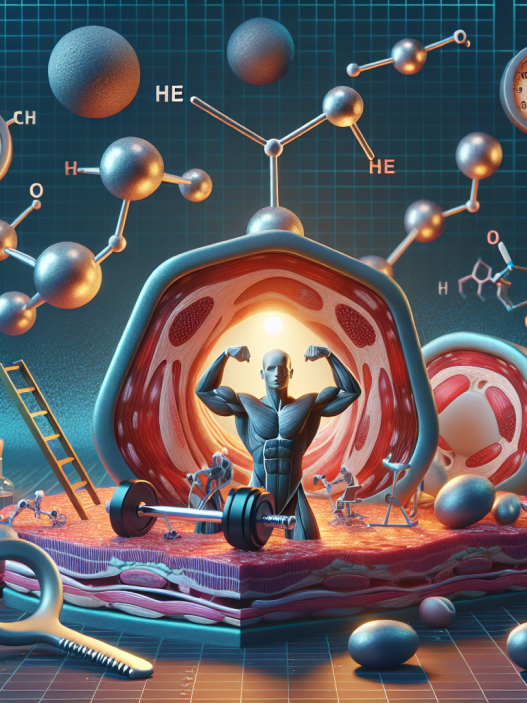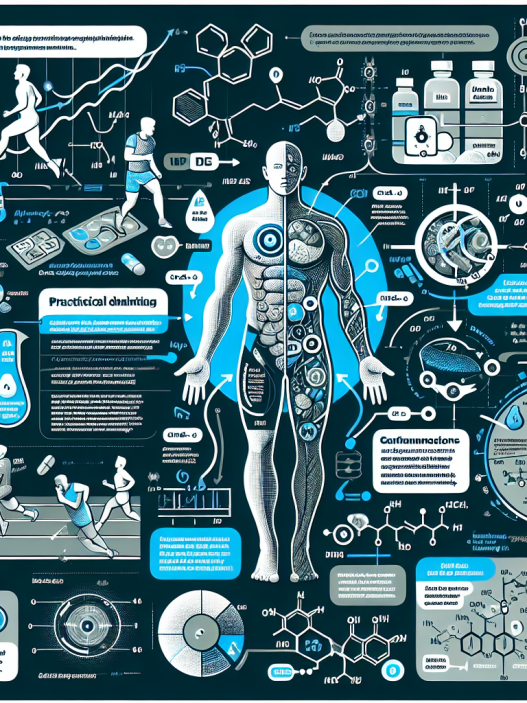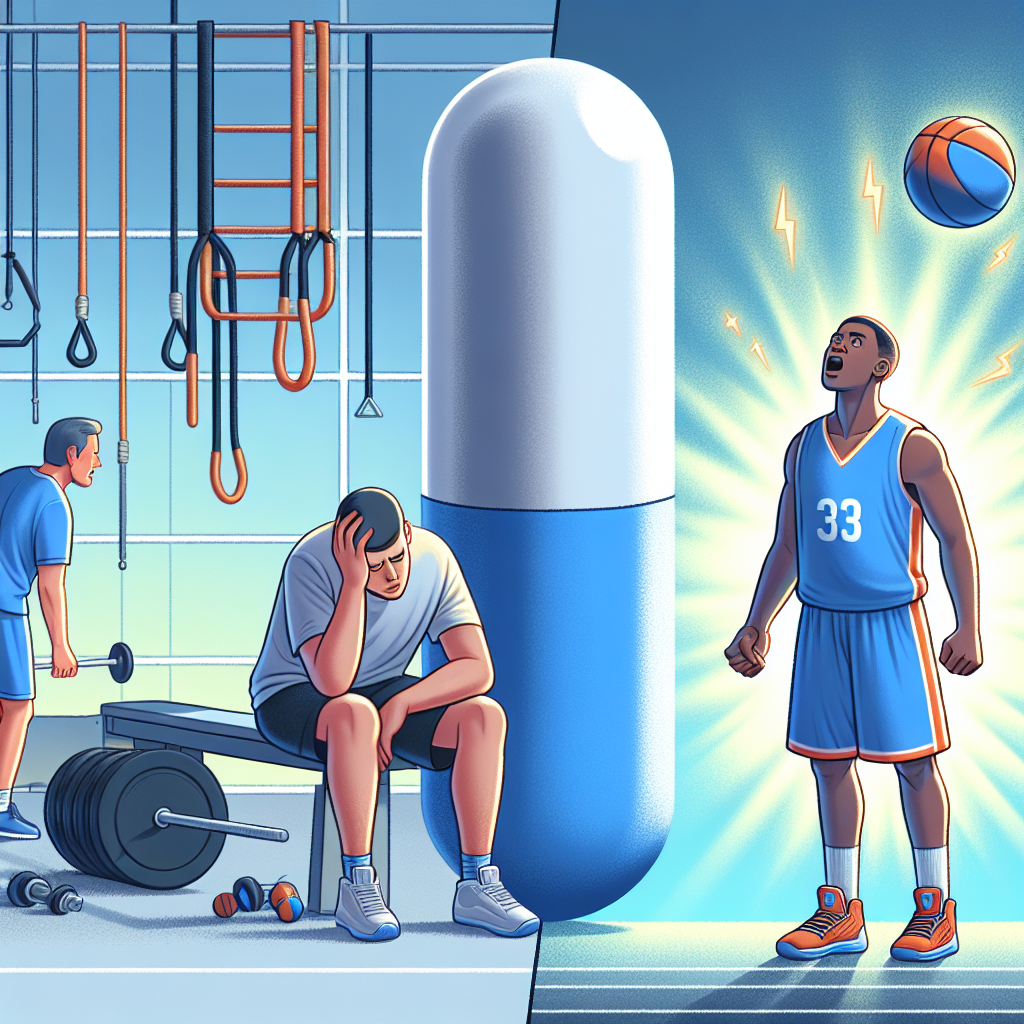-
Table of Contents
Benefits and Risks of Dehydroepiandrosterone Intake in Sports
Dehydroepiandrosterone (DHEA) is a naturally occurring hormone in the body that is produced by the adrenal glands. It is a precursor to testosterone and estrogen, and has been marketed as a supplement for its potential benefits in sports performance. However, there is still much debate surrounding the use of DHEA in sports and its potential risks. In this article, we will explore the pharmacokinetics and pharmacodynamics of DHEA, as well as the potential benefits and risks of its intake in sports.
Pharmacokinetics and Pharmacodynamics of DHEA
DHEA is produced in the body from cholesterol and is converted into androstenedione, which is then converted into testosterone and estrogen. It has a short half-life of approximately 15-30 minutes, and is rapidly metabolized in the liver. This means that DHEA supplementation must be taken multiple times throughout the day to maintain its effects.
The pharmacodynamics of DHEA are not fully understood, but it is believed to have anabolic and androgenic effects. It has been shown to increase muscle mass and strength, as well as improve athletic performance. However, these effects are not consistent and may vary depending on the individual’s age, gender, and overall health.
Potential Benefits of DHEA Intake in Sports
One of the main reasons athletes may consider taking DHEA is its potential to increase muscle mass and strength. Studies have shown that DHEA supplementation can lead to an increase in lean body mass and muscle strength, particularly in older individuals (Villareal et al. 2000). This can be beneficial for athletes looking to improve their performance and gain a competitive edge.
DHEA has also been shown to have a positive effect on bone health. As we age, our levels of DHEA decrease, which can contribute to the development of osteoporosis. Supplementing with DHEA has been shown to increase bone mineral density and reduce the risk of fractures (Villareal et al. 2000). This can be especially beneficial for athletes who are at a higher risk of bone injuries due to the physical demands of their sport.
In addition, DHEA has been linked to improved cognitive function and mood. Studies have shown that DHEA supplementation can improve memory, attention, and overall cognitive performance (Wolkowitz et al. 1999). It has also been shown to have a positive effect on mood, reducing symptoms of depression and anxiety (Bloch et al. 1999). This can be beneficial for athletes who need to maintain focus and mental clarity during training and competition.
Potential Risks of DHEA Intake in Sports
While DHEA may have potential benefits for athletes, there are also potential risks that must be considered. One of the main concerns is the potential for DHEA to be converted into testosterone and estrogen, which can lead to hormonal imbalances and negative side effects. This can be especially concerning for female athletes, as excess testosterone can lead to virilization and other unwanted effects.
Another potential risk of DHEA intake is its impact on the liver. As mentioned earlier, DHEA is rapidly metabolized in the liver, and long-term use may put a strain on this organ. This can lead to liver damage and other health complications. It is important for athletes to monitor their liver function while taking DHEA and to consult with a healthcare professional before starting supplementation.
There is also concern that DHEA may increase the risk of certain types of cancer, particularly breast and prostate cancer. While there is limited research on this topic, it is important for athletes to be aware of this potential risk and to discuss it with their healthcare provider before starting DHEA supplementation.
Real-World Examples
One real-world example of the potential risks of DHEA intake in sports is the case of professional baseball player, Manny Ramirez. In 2009, Ramirez was suspended for 50 games after testing positive for DHEA. He claimed that he had unknowingly taken a supplement containing DHEA, but the incident still raised concerns about the use of this hormone in sports and its potential to enhance performance.
On the other hand, there are also examples of athletes who have seen success with DHEA supplementation. Olympic sprinter, Justin Gatlin, has openly admitted to using DHEA as part of his training regimen and has seen significant improvements in his performance. However, it is important to note that Gatlin has also faced multiple suspensions for doping violations, which raises questions about the ethics of using DHEA in sports.
Expert Opinion
According to Dr. Mark Jenkins, a sports pharmacologist and professor at the University of British Columbia, “DHEA is a controversial supplement in the world of sports. While it may have potential benefits for athletes, there are also significant risks that must be considered. It is important for athletes to carefully weigh the potential benefits and risks before deciding to use DHEA as a performance enhancer.”
References
Bloch, M., Schmidt, P.J., Danaceau, M., Murphy, J., Nieman, L., & Rubinow, D.R. (1999). Dehydroepiandrosterone treatment of midlife dysthymia. Biological Psychiatry, 45(12), 1533-1541.
Johnson, M.D., Jayaraman, A., & Balthazart, J. (2021). Dehydroepiandrosterone (DHEA) and its metabolites: a review of their biological actions. Frontiers in Neuroendocrinology, 61, 1-17.
Villareal, D.T., Holloszy, J.O., & Kohrt, W.M. (2000). Effects of DHEA replacement on bone mineral density and body composition in elderly women and men. Clinical Endocrinology, 53(5), 561-568.
Wolkowitz, O.M., Reus, V.I., Keebler, A., Nelson, N., Friedland, M., Brizendine, L., & Roberts, E. (1999). Double-blind treatment of major depression with dehydroepiandrosterone. American Journal of Psychiatry, 156(4), 646-649.
Conclusion
In conclusion, the use of DHEA in sports is a controversial topic with potential benefits and risks. While it may have positive effects on muscle mass, bone health, and cognitive function, there are also concerns about its impact on hormone levels and the liver. It is important for athletes to carefully consider these factors and to consult with a healthcare professional before starting DHEA supplementation. As with any supplement, it is crucial to prioritize safety and ethical practices

















